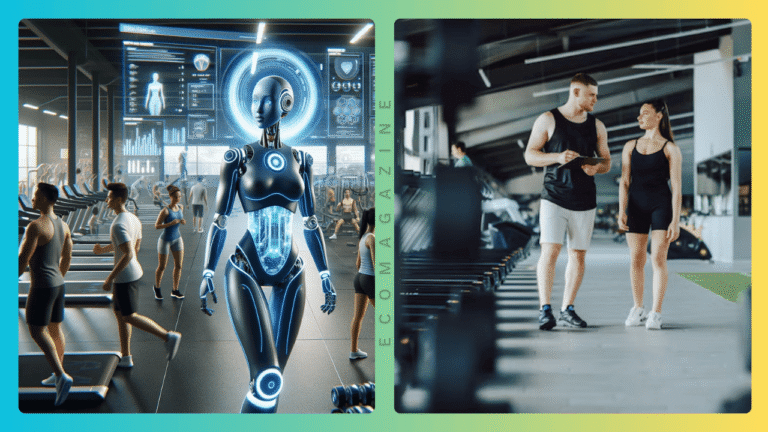In recent years, artificial intelligence (AI) has made its way into nearly every aspect of our lives, including fitness. From personalized workout apps to smart wearables tracking every movement, AI promises to revolutionize how we approach health and wellness. But this raises a critical question—can AI really replace the experience, intuition, and guidance of a personal trainer? Or is there still unmatched value in human expertise when it comes to understanding your body?
The Rise of AI in Fitness
AI-powered fitness tools have grown rapidly due to their accessibility and convenience. Fitness apps like Freeletics, Fitbod, and Apple Fitness+ use machine learning to tailor workouts based on user data. These platforms analyze your progress, suggest routines, and adapt to your fitness level over time. They’re available 24/7, don’t require appointments, and are often much more affordable than hiring a personal trainer.
Wearables like smartwatches and fitness trackers also use AI to monitor your heart rate, sleep patterns, activity levels, and even stress. The data collected helps users make informed decisions about their health and build more efficient workout routines.
What Human Trainers Bring to the Table
Despite the convenience of AI, personal trainers offer benefits that machines still struggle to replicate. A qualified trainer doesn’t just follow a script—they observe your form, listen to your concerns, understand your motivation (or lack of it), and adjust sessions in real time. They also bring a psychological element to fitness. Having someone encourage you, push your limits safely, and hold you accountable can make a world of difference in reaching your goals.
Trainers can also spot small but important cues—like muscle imbalances, fatigue, or emotional burnout—that AI might miss. They often work closely with clients who have injuries or medical conditions, creating specialized plans that consider both physical limitations and recovery timelines.
Understanding the Body: Data vs. Intuition
AI thrives on data. It tracks your reps, sets, calories burned, and rest periods. But human bodies aren’t always predictable. Hormonal changes, emotional stress, lack of sleep, or even subtle signs of overtraining can significantly affect performance—and these aren’t always measurable.
Personal trainers rely on a mix of science and intuition. Years of working with various body types, fitness levels, and personalities teach them to adapt in ways an algorithm can’t. For instance, if you show up to a session looking drained, a trainer might swap an intense leg day for a lighter yoga routine. An AI might not notice the fatigue and stick to the pre-set program.
Visit the official site www.steroids-uk.com for advanced supplements that support serious training and performance goals.
The Ideal Approach: Combining AI and Human Expertise
Instead of choosing between AI and a personal trainer, the future likely belongs to a hybrid model. Many trainers now use AI-driven tools to enhance their services, allowing them to track client progress more accurately, adjust plans more efficiently, and offer support outside of scheduled sessions.
Likewise, users can rely on AI tools for daily consistency while checking in with a trainer weekly or monthly for form corrections, advanced programming, and motivation. This dual approach can provide the best of both worlds—data-driven personalization and human connection.
Budget, Goals, and Lifestyle: What’s Best for You?
Deciding between AI and a personal trainer often comes down to your goals, budget, and lifestyle. If you’re just starting out, an app might give you the structure and motivation you need to begin. If you have specific goals like bodybuilding, injury recovery, or training for a competition, a personal trainer can guide you more effectively.
For busy professionals or travelers, AI offers flexibility. You can work out anytime, anywhere, with a structured plan. On the other hand, if you thrive on accountability, a real person waiting for you at the gym might keep you more committed.
Final Thoughts
While AI is making impressive strides in the fitness industry, it hasn’t completely replaced the human touch. Personal trainers bring empathy, adaptability, and real-time feedback that machines can’t fully replicate. But for many, AI offers a powerful way to stay consistent, track progress, and maintain a routine.
Ultimately, the best fitness journey is the one that keeps you engaged, motivated, and progressing—whether that’s with a smart app, a certified trainer, or both. The important thing is to stay active, listen to your body, and make choices that support your long-term health.


